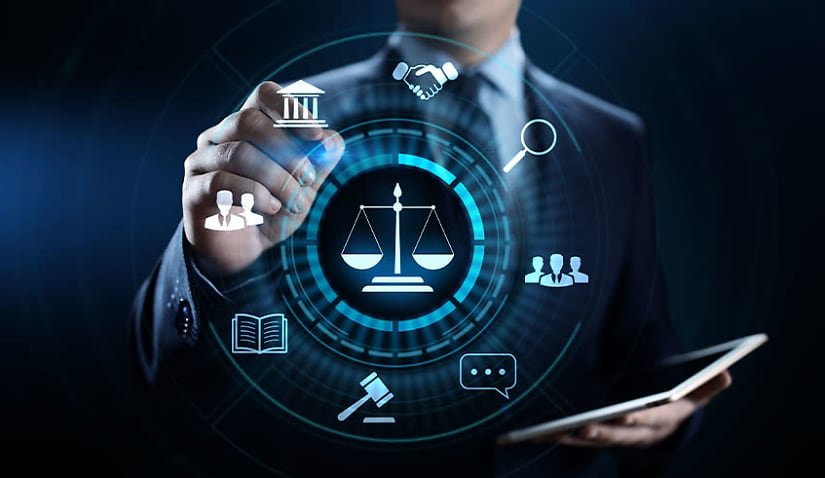The Role of Technology in Legal Services in India
Technology is reshaping almost every sector of the economy, and the legal industry in India is no exception. Over the past decade, rapid digitalization has transformed how legal professionals deliver services and how clients access them. From virtual court hearings to AI-powered research tools, the integration of technology is making legal processes more efficient, transparent, and accessible.
Digitalization of Legal Services in India
The digital revolution in the legal sector is visible across multiple domains:
1. E-Courts and Online Case Management
The introduction of e-Courts under the National e-Governance Plan has been a game-changer. Litigants and lawyers can now:
- Access case status online
- View judgments and orders digitally
- File cases through e-filing systems
This reduces paperwork, increases transparency, and saves time for both lawyers and clients.
2. Virtual Hearings and Online Dispute Resolution (ODR)
The COVID-19 pandemic accelerated the adoption of virtual hearings in the Supreme Court, High Courts, and lower courts. Platforms like Zoom and Webex enabled continuity of judicial processes. Similarly, Online Dispute Resolution (ODR) platforms are helping resolve commercial disputes, consumer complaints, and arbitration cases without the need for physical appearances.
3. Legal Research and Artificial Intelligence
Traditionally, legal research was time-consuming. Today, AI-driven tools such as SCC Online, Manupatra, and Casemine provide instant access to case laws, precedents, and statutes. Advanced algorithms suggest relevant judgments, making research faster and more accurate.
4. Legal Tech Startups and Platforms
India has seen the rise of legal tech startups offering services such as:
- Online legal documentation (contracts, wills, agreements)
- Lawyer-client matchmaking platforms
- Automated compliance management tools
These platforms are especially useful for startups, SMEs, and individuals who need affordable legal solutions.
5. Blockchain and Smart Contracts
While still emerging in India, blockchain technology is being explored for secure record keeping, property registration, and smart contracts. This could reduce fraud and enhance trust in legal transactions.
Benefits of Technology in Legal Services
- Accessibility: Clients from remote areas can consult lawyers online.
- Cost-Effectiveness: Virtual hearings and online documentation reduce overhead costs.
- Time-Saving: Faster research, e-filing, and automated processes save valuable time.
- Transparency: Online systems make case progress and judgments publicly available.
- Scalability: Lawyers can serve more clients efficiently using digital tools.
Challenges in Adopting Technology
- Digital Divide: Many rural areas still lack internet access, limiting online legal services.
- Cybersecurity Risks: Data protection and confidentiality of sensitive legal documents are major concerns.
- Resistance to Change: Some lawyers and clients prefer traditional, in-person methods.
- Regulatory Issues: Legal frameworks need to adapt to govern AI, blockchain, and online dispute resolution effectively.
The Future of Legal Technology in India
- AI-Powered Case Prediction: Machine learning could help predict case outcomes based on historical data.
- Expansion of ODR: Online arbitration and mediation platforms will likely become mainstream.
- Digital Legal Education: Law schools are integrating legal tech into their curriculum, preparing future lawyers for a tech-driven profession.
- Blockchain Integration: Property registration, contract enforcement, and identity verification could increasingly use blockchain for enhanced security.
Conclusion
The role of technology in legal services in India is not just about modernization but about creating a more inclusive, efficient, and transparent legal ecosystem. While challenges remain, the ongoing digital transformation is empowering both legal professionals and clients. As India moves towards a more digital economy, the legal sector’s adoption of technology will play a critical role in ensuring access to justice, faster dispute resolution, and greater trust in the legal system.

